Teenage Mutant Ninja Turtles: The Cowabunga Collection Review | Next-Gen Nostalgia
You no longer need Shredder's time warp to experience TMNT's greatest classics.
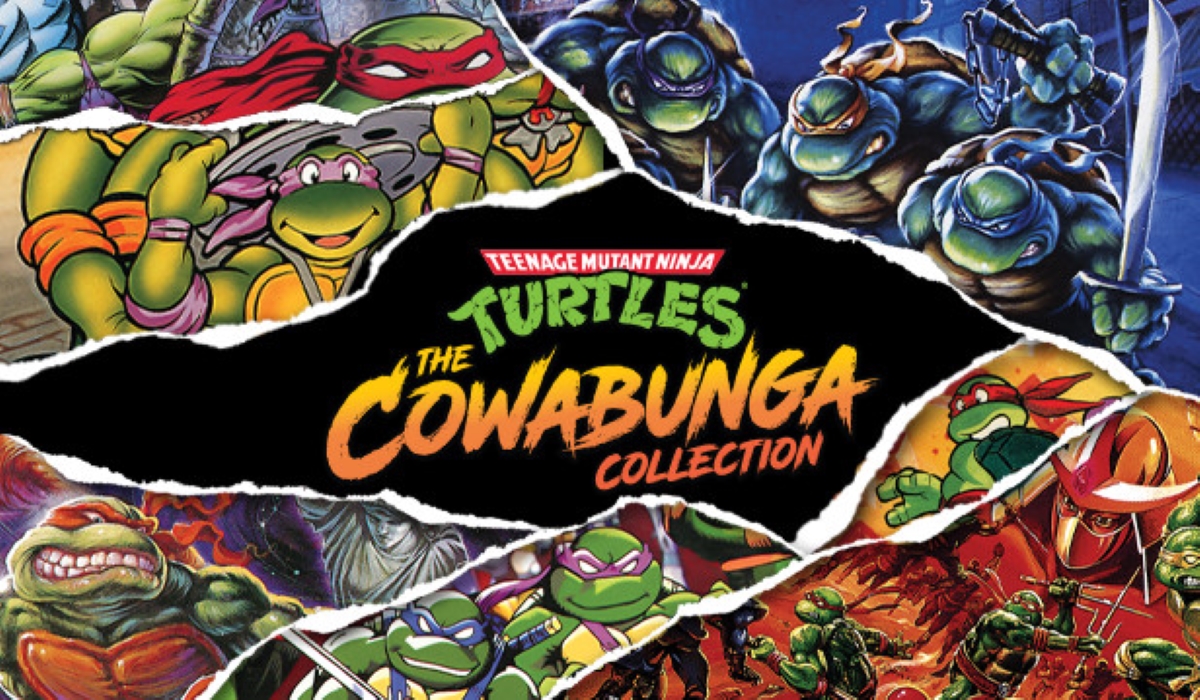
As if one epic Teenage Mutant Ninja Turtle experience wasn’t enough for this year, merely two months after the Summer release of the franchise’s most recent hit title, Shredder’s Revenge, comes the latest in the line of games based on Kevin Eastman and Peter Laird’s legendary multimedia universe in the form of Teenage Mutant Ninja Turtles: The Cowabunga Collection from Digital Eclipse Studios and Konami, which launched on August 30.
If Shredder’s Revenge didn’t manage to provide TMNT fanatics with their fill of the “Heroes in a Half-Shell,” then The Cowabunga Collection is surely up to the task with a sizable compilation of thirteen Teenage Mutant Ninja Turtles’ Konami classics originally for arcade, Nintendo and Sega consoles spanning from 1989 to 1993, remastered for the Nintendo Switch, PC, PlayStation 4, PlayStation 5, Xbox One, and Xbox Series X|S. This review will provide a deep dive into The Cowabunga Collection, discussing the games included, analyzing its features, examining its value proposition, and presenting a score for the compilation to help you determine whether or not to purchase this TMNT Adventure 30+ years in the making.
Games of The Cowabunga Collection
The thirteen games featured in The Cowabunga Collection (and their original gaming platforms/release years) are as follows:
Teenage Mutant Ninja Turtles (NES) – 1989
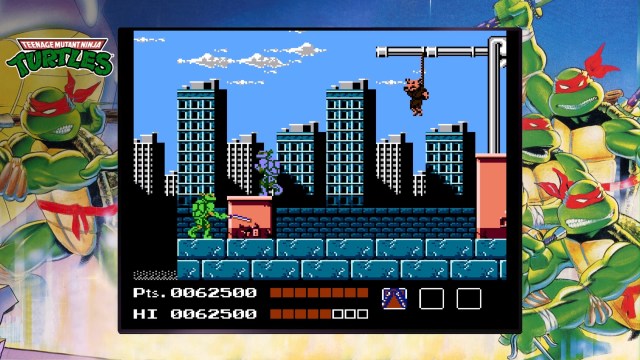
Teenage Mutant Ninja Turtles (Arcade) – 1989
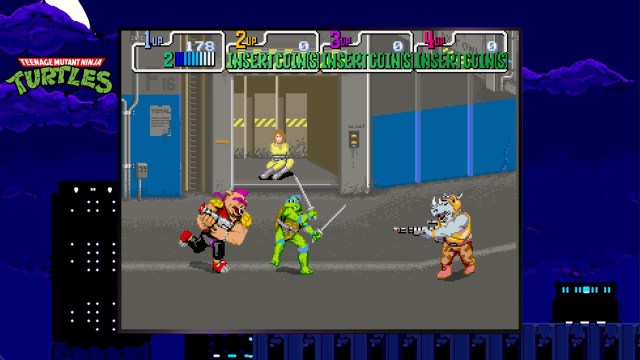
Teenage Mutant Ninja Turtles II: The Arcade Game (NES) – 1990
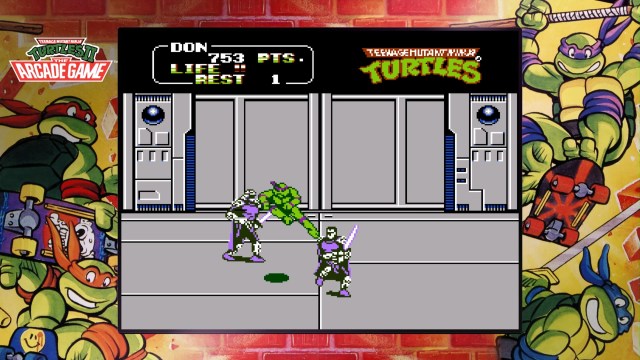
Teenage Mutant Ninja Turtles: Fall of the Foot Clan (Game Boy) – 1990
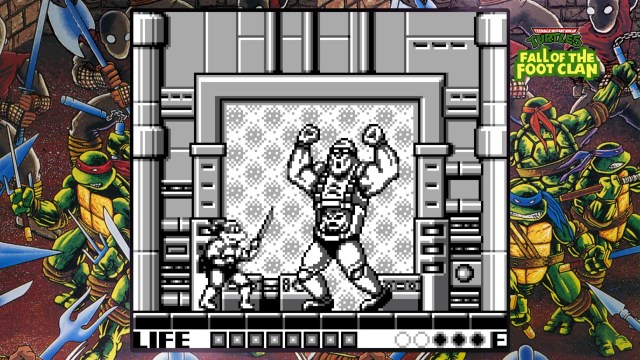
Teenage Mutant Ninja Turtles: Turtles in Time (Arcade) – 1991
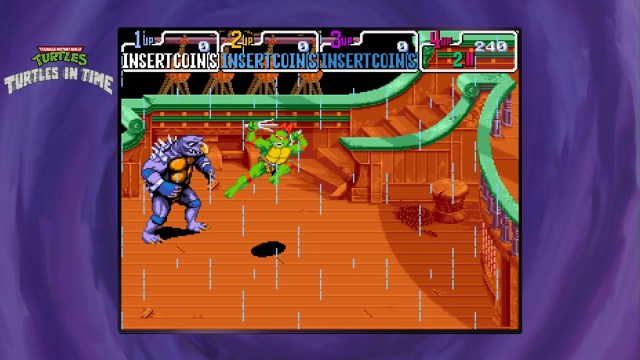
Teenage Mutant Ninja Turtles II: Back From the Sewers (Game Boy) – 1991
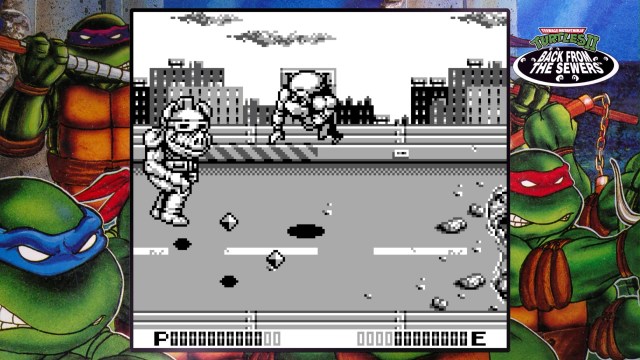
Teenage Mutant Ninja Turtles III: The Manhattan Project (NES) – 1991
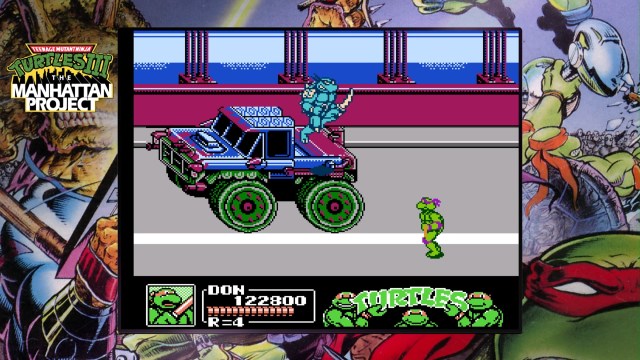
Teenage Mutant Ninja Turtles IV: Turtles in Time (SNES) – 1992
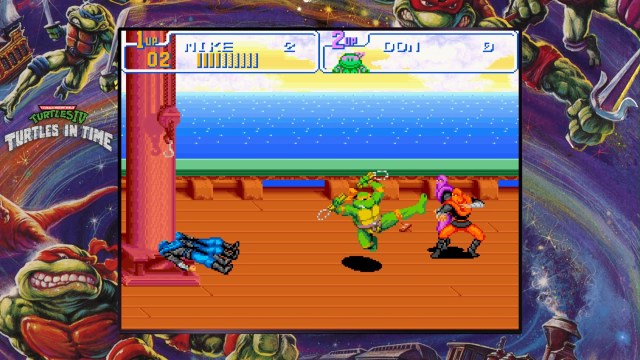
Teenage Mutant Ninja Turtles: The Hyperstone Heist (Sega Genesis) – 1992
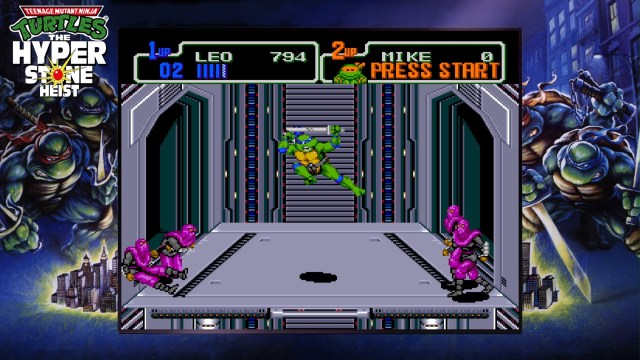
Teenage Mutant Ninja Turtles III: Radical Rescue (Game Boy) – 1993
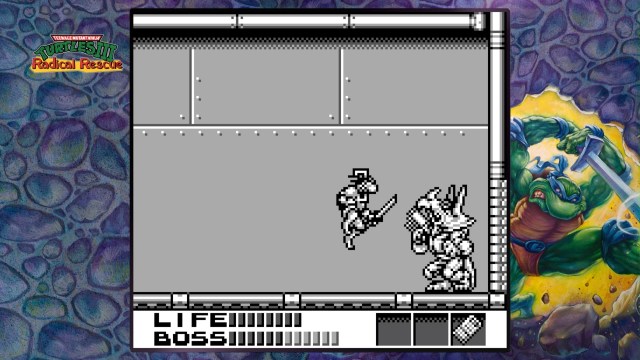
Teenage Mutant Ninja Turtles: Tournament Fighters (SNES) – 1993
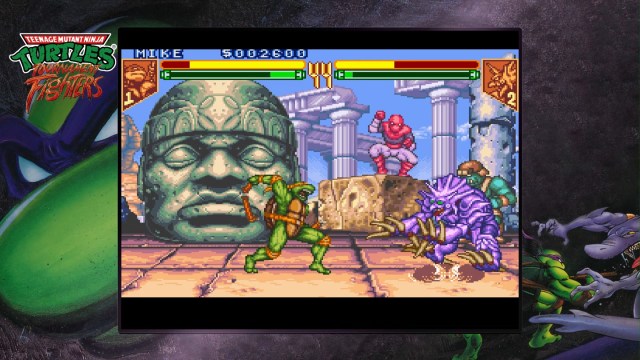
Teenage Mutant Ninja Turtles: Tournament Fighters (Sega Genesis) – 1993
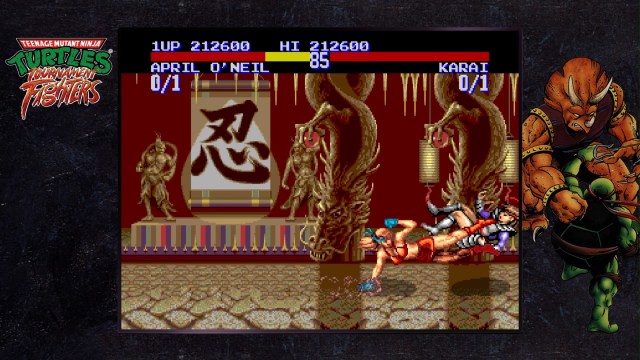
Teenage Mutant Ninja Turtles: Tournament Fighters (NES) – 1993
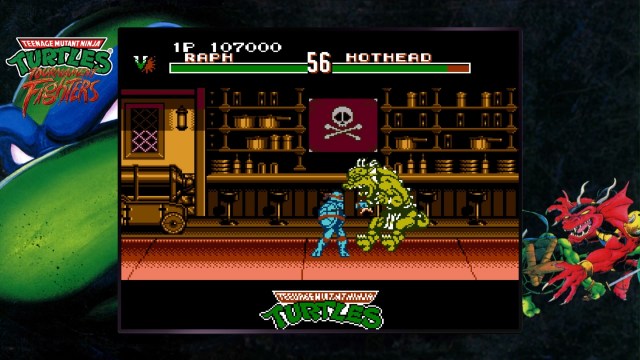
All thirteen of these Ninja Turtle classics are bundled together within The Cowabunga Collection for a total price of $39.99, approximately $3 per game. If you are seeking the most bang for your buck, then the PlayStation and Xbox versions are clearly the way to go, as the digital iterations on those platforms include both the PS4 and PS5 and Xbox One and Series X|S versions respectively, meaning that you can get a total of 26 games for $39.99. For TMNT fans and retro gamers, this is an absolute steal.
While a thorough explanation for each of the thirteen games would turn this review into something akin to a college thesis, to more broadly summarize the overall experience of The Cowabunga Collection, while each game falls under the umbrella of “retro Ninja Turtles’ games,” no two experiences are completely alike. This compilation runs the gamut of gaming genres spanning from arcade beat ’em ups to, action platformers, to fighting games, and even a Metroidvania title too. One minute you can be battling your way through history with couch co-op friends in Turtles in Time, while shortly after you may find yourself navigating the depths of Shredder’s sprawling dungeon maze in Radical Rescue, and later, you might cap off your gaming session exploring Tournament Fighters, determining which character on the roster will be your main.
Despite these games being 30+ years old in some cases, when playing The Cowabunga Collection’s many offerings, it becomes increasingly apparent why these throwbacks have earned their status as beloved classics, with each providing a memorable, short, but sweet experience. Simply, if you are a fan of the Teenage Mutant Ninja Turtles, or retro games in general, you will undeniably find a gaming experience to enjoy in The Cowabunga Collection.
Related: All Games in TMNT: The Cowabunga Collection Listed
From the Comic Page to the Arcade
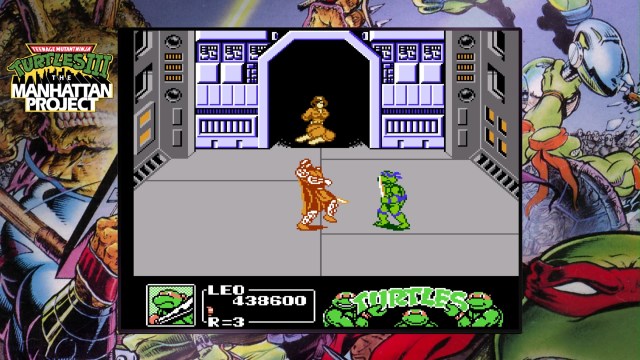
Through the franchise’s nearly 40 years of existence, the Teenage Mutant Ninja Turtles have grown from a gritty, black and white indie comic into a massive multimedia cultural phenomenon with a vast universe of characters and stories. Whether your love for the crimefighting quartet was spawned by the seminal Mirage comic books by Eastman and Laird, the various animated series, the franchise’s lengthy videogame catalog, or its films, The Cowabunga Collection is truly a TMNT maniac’s dream come true.
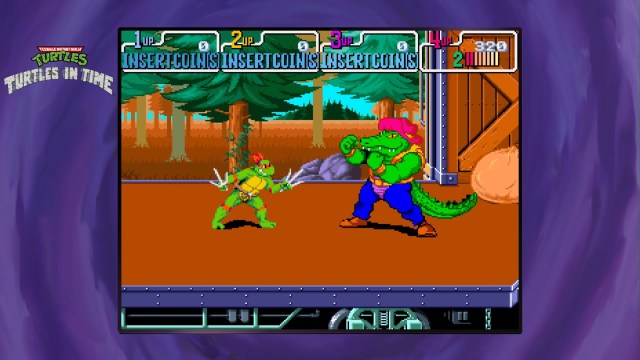
Each game featured pays tribute to TMNT lore, featuring every major character such as heroes like Master Splinter, April O’Neil, and Casey Jones, and a huge cast of iconic villains including Bebop, Rocksteady, Baxter Stockman, Krang, and the Ninja Turtles’ ultimate nemesis, the sinister Shredder. While The Cowabunga Collection largely focuses on its A-list of villains, there are some great boss fights against some underrated TMNT rogues like Leatherhead, Dirtbag, Slash, and the Triceratons to name a few deserving, lesser-known foes.
However, in terms of the games’ narratives, if you are looking for the most well-written storylines (like ones found in TMNT comics), complex characters, or intelligent dialogue, then The Cowabunga Collection may not be your slice of pizza. This compilation has the trademark Teenage Mutant Ninja Turtle action-movie cheesiness, replete with damsel in distress tropes, and black and white morality. Most of the games’ plots revolve around saving April O’Neil (the vast majority of the time), or sometimes Splinter, the Statue of Liberty, and even Manhattan itself from the clutches of the Sinister Shredder, and his many evil minions. However, this isn’t so much of a flaw as a reflection of the time in which the games were made, and their intended target market.
Related: TMNT: Shredder’s Revenge Review: The Test of Time
Turtle Power Gameplay
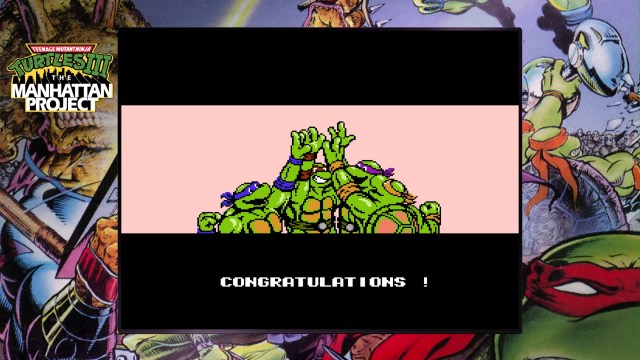
The Cowabunga Collection puts players in the shells of the four iconic Teenage Mutant Ninja Turtles, the purple-masked, staff-wielding Donatello, the blue-mantled, katana-slashing, Leonardo, the orange-bandanaed, nunchaku-slinging, Michaelangelo, and the red-cowled, twin-sai stabbing, Raphael. Whether you’re a fan of Donatello’s intelligence, Leonardo’s leadership, Michaelangelo’s humor, or Raphael’s rebelliousness each character is a blast to play as, with each Ninja Turtle feeling unique, but never overpowered when compared to the others.
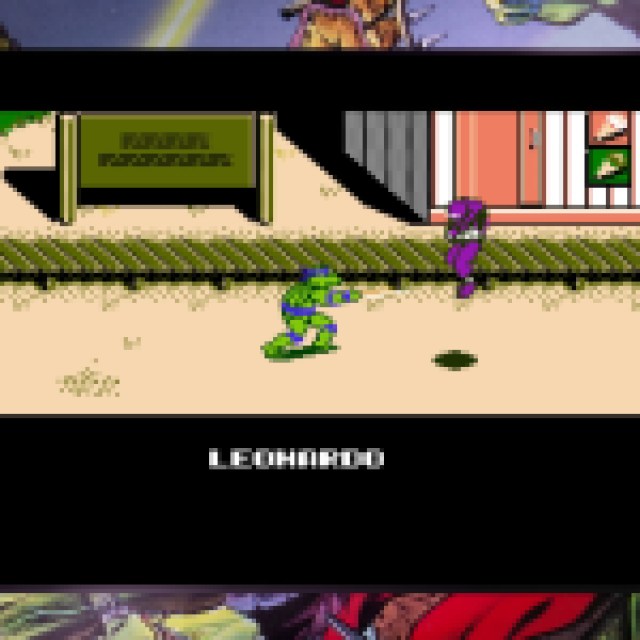
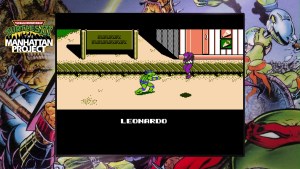
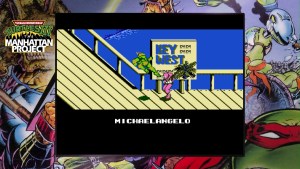
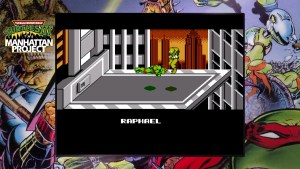
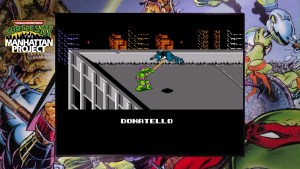
Despite the various genres on display, aside from the Tournament Fighter games, most of the gameplay in each title of The Cowabunga Collection centers around battling through or dodging massive groups of enemies like Foot Clan soldiers, Mousers, and various bosses to complete levels, while collecting pizzas to sustain the turtles’ precious health bars. While each game contains its own unique spin on Ninja Turtle action, there is some general repetitiveness in terms of locations, basic enemies, and game mechanics, but that is to be expected with games using the same source material, and were released over the course of multiple years upon initial launch. However, due to their combination together in The Cowabunga Collection, the similarities cause some of the games to blend together after hours upon hours of fighting similar locations, enemies, and bosses. By the time you’ve finished The Cowabunga Collection, you will probably know the layout The Technodrome better than Shredder and Krang do.
Retro Difficulty with Modern Accessibility
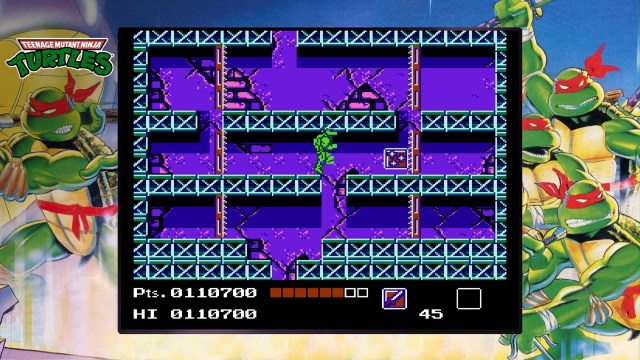
With the advent of modern consoles and the increased consumer-orientation of the market, it can be a shell-shocking experience to leave the comforts of 60 frames per second, 4K resolution, and haptic feedback controllers to return to the videogame Stone Age of 8-Bit graphics. However, the most jarring element of the thirteen Ninja Turtle experiences found in The Cowabunga Collection is not the simplistic control schemes, retro visuals, or repetitive/catchy throwback music, but the general challenge and occasional brutal difficulty that appears throughout the collection. While one might expect games meant for children of the late ’80s and early ’90s to be easier experiences, The Cowabunga Collection’s titles will truly test the skills of its players.
But fear not challenge-averse gamers, as The Cowabunga Collection is not unforgiving in its difficulty thanks to the accessibility options provided by Digital Eclipse. Through using some helpful features, anyone, of all gaming skill sets, who want to experience the next-gen nostalgia can do so without fear of embarrassing, repeated failure. The most notable of the accessibility tools at gamers’ disposal is the rewind function, which allows players to reverse time a few seconds back, giving a mulligan for when you inevitably get hit by enemies, jump into fire, run into lasers, fall into lava, are impaled by spikes, flattened by cars, blown up by bombs, or when you just want to redo a punch to try a cooler move combo. Also, in the case of the many arcade-style games within the collection, the rewind function is not even necessary, as at the press of a button you can add lives to your playthrough at your leisure without any actual monetary cost. Thanks to The Cowabunga Collection, arcade games that once siphoned the allowances from young ’80s and ’90s TMNT gamers can now be enjoyed without the loss of quarters, from the comfort of home.
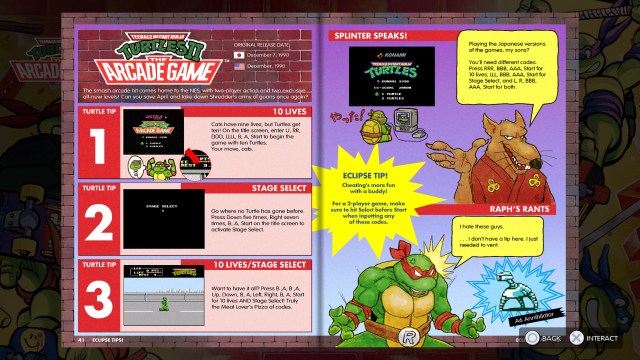
Furthermore, The Cowabunga Collection even provides cheats to its games right in the “strategy guide” section of the pause menu including the famous Konami Code in some instances, and Digital Eclipse also provides a “God Mode” option for certain titles in the compilation if you so desire. While, for the honest gamer who would prefer to beat the games “legit” there are also basic strategy guides included for each applicable title in the collection, and even watchable videos of perfect runs to lend a helping hand for how to accomplish certain sections without the aid of cheats or God Mode. You can even commence gameplay directly from the videos at any time, allowing you to practice difficult sections, or jump right into a boss fight without having to play through the entire game. Thanks to the accessibility options of The Cowabunga Collection, reaching the end credits of each Ninja Turtles’ experience is possible for everyone, regardless of skill level. And for those who seek even more of a challenge, there are options like “Nightmare Mode” to ratchet up the difficulty even further for certain games.
Authenticity, Customization, and Features
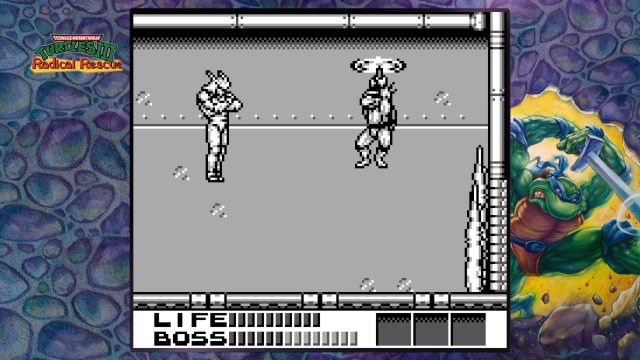
Digital Eclipse have outdone themselves in recreating an authentic experience that harkens back to the days where arcade games were king, and the NES, SNES, Game Boy, and Sega Genesis were the consoles of choice. Along with providing playable versions of the collection’s games for modern consoles, Digital Eclipse has gone even a step further by allowing gamers to toggle sprite flicker and game slowdown on or off at their discretion in an attempt to provide Cowabunga Collection owners a history lesson of what it was like to play these games when they initially launched in the late ’80s and early ’90s.
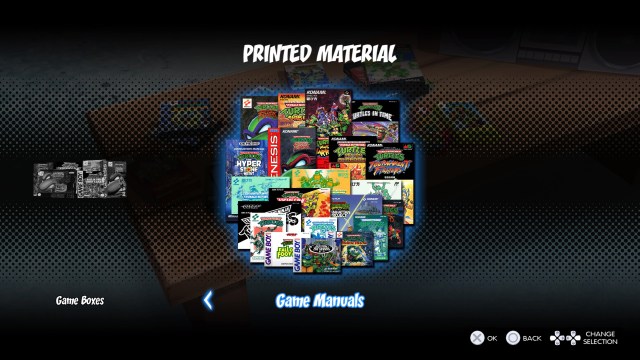
While the optimal way to play these TMNT classics are obviously on their original hardware, for younger or modern-oriented gamers who don’t own older consoles, and have never played these games previously, Digital Eclipse has provided a great service in keeping these titles alive for the next generation of gamers and Ninja Turtle fans. The compilation even has a virtual “Turtles’ Lair,” where you can find the retro videogame packaging, original instruction manuals for The Cowabunga Collection’s games, stills from the various TMNT animated series, comic book covers, and even concept art for the games. Digital Eclipse should be applauded for helping to preserve gaming and Teenage Mutant Ninja Turtle history.
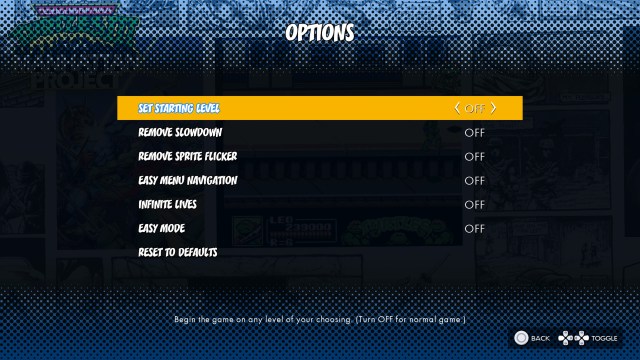
Aside from the aforementioned difficulty settings, The Cowabunga Collection has a variety of customization options to appeal to the modern gamer. These include control remapping, adjusting the size of the screen to decrease the size of borders, removing sprite flicker, level select, etc.
Co-Op and Online Multiplayer
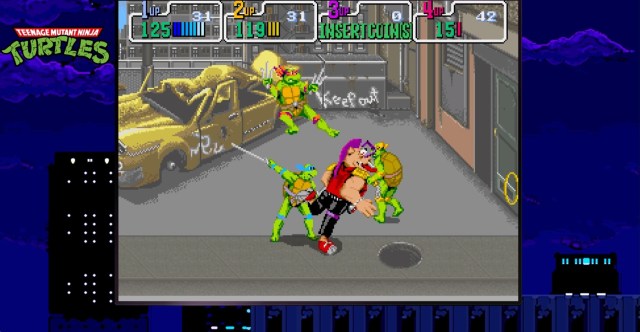
There are two elements of multiplayer in Teenage Mutant Ninja Turtles, the first being local “couch” co-op or online multiplayer. The Cowabunga Collection features four multiplayer games and nine couch co-op games. The four online multiplayer games are Teenage Mutant Ninja Turtles (Arcade), Turtles in Time (Arcade), Tournament Fighters (SNES), and The Hyperstone Heist. The couch co-op games include the same online multiplayer ones, as well as Teenage Mutant Ninja Turtles II: The Arcade Game (NES), Turtles in Time (SNES), The Manhattan Project and both Tournament Fighters games for the NES and Sega Genesis.
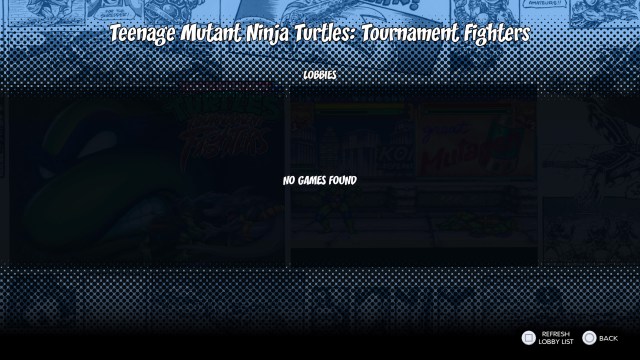
In my personal exploration of multiplayer, the couch co-op of The Cowabunga Collection provided a universally excellent experience and a fun time that could be enjoyed by any skill level of gamer. However, my online multiplayer sessions were very hit and miss, as I faced difficulty joining matches, occasional lag that steeply slowed the pace of gameplay, mid-game disconnection, and being unable to even find a co-op opponent for Tournament Fighters online despite many attempts. However, aside from these negatives, when the multiplayer functioned as it normally should, dropping into co-op games and experiencing these multiplayer classics as they were intended with teamwork and cooperation was a magical experience.
Pros and Cons
- Radical!
- Excellent use of TMNT lore and characters
- Variety of genres/gameplay styles
- Challenging, but accessible
- Authentic experience
- Incredible bang for your buck
- Customizable settings
- All turtles are equally fun to play as
- Ample bonus content for the die-hard TMNT fans
- Each game can be played in single player mode
- Great couch co-op
- Brings classic games to a new generation of gamers
- A little something for every kind of retro gamer and TMNT fan
- Cowabummer!
- Semi-repetitive gameplay across the collection
- Online multiplayer inconsistency
Verdict – Who Should Buy This Game?
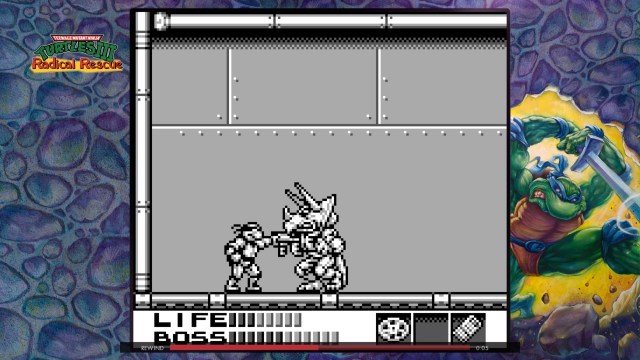
With its combination of frenetic, challenging gameplay, a variety of genres to explore, modern accessibility, and its homage to the franchise’s lore and history, I highly recommend Teenage Mutant Ninja Turtles: The Cowabunga Collection… to the right kind of gamer. For retro game lovers and TMNT franchise fanatics, this compilation is a must-buy. Unless you already own all of these games on their intended, initial platforms, you will undeniably get your money’s worth from The Cowabunga Collection’s varied Ninja Turtle action. However, retro game haters and those who don’t care for “The Heroes in a Half Shell” will find little to no value in Digital Eclipse and Konami’s blast from the past.
Teenage Mutant Ninja Turtles: The Cowabunga Collection Score: 9
A copy of this game was provided to Prima Games for review. Reviewed on PS4.
